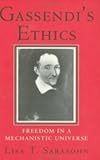Gassendi's Ethics : Freedom in a Mechanistic Universe / Lisa T. Sarasohn.
Material type: TextPublisher: Ithaca, NY : Cornell University Press, [2018]Copyright date: ©1996Description: 1 online resource (256 p.)Content type:
TextPublisher: Ithaca, NY : Cornell University Press, [2018]Copyright date: ©1996Description: 1 online resource (256 p.)Content type: - 9781501718434
- 170/.92 23
- online - DeGruyter
| Item type | Current library | Call number | URL | Status | Notes | Barcode | |
|---|---|---|---|---|---|---|---|
 eBook
eBook
|
Biblioteca "Angelicum" Pont. Univ. S.Tommaso d'Aquino Nuvola online | online - DeGruyter (Browse shelf(Opens below)) | Online access | Not for loan (Accesso limitato) | Accesso per gli utenti autorizzati / Access for authorized users | (dgr)9781501718434 |
Browsing Biblioteca "Angelicum" Pont. Univ. S.Tommaso d'Aquino shelves, Shelving location: Nuvola online Close shelf browser (Hides shelf browser)

|

|

|

|

|

|

|
||
| online - DeGruyter The Constitution of Selves / | online - DeGruyter Breaking the Watch : The Meanings of Retirement in America / | online - DeGruyter Looking Back at Law's Century / | online - DeGruyter Gassendi's Ethics : Freedom in a Mechanistic Universe / | online - DeGruyter Medicalizing Ethnicity : The Construction of Latino Identity in a Psychiatric Setting / | online - DeGruyter "Rich Nation, Strong Army" : National Security and the Technological Transformation of Japan / | online - DeGruyter Mazes of the Serpent : An Anatomy of Horror Narrative / |
Frontmatter -- Contents -- Preface -- CHAPTER ONE. Introduction: Life and Context -- CHAPTER TWO. Probability in Ethics, Natural Philosophy, and Epistemology -- CHAPTER THREE. The Ethics of Pleasure and Freedom -- CHAPTER FOUR. Gassendi; Descartes, and Their Predecessors on the Liberty of Indifference -- CHAPTER FIVE. The Astrological Threat to Freedom -- CHAPTER SIX. The Ethics of the Mechanical Universe -- CHAPTER SEVEN. The Role of Freedom and Pleasure in the State and Society -- CHAPTER EIGHT. Gassendi and Locke -- CHAPTER NINE. Gassendi and the Enlightenment -- APPENDIX. The Dating of the “'Ethics” of the Syn tagma Philosophicum -- Works Cited -- Index
restricted access online access with authorization star
http://purl.org/coar/access_right/c_16ec
This is the first book to explore the ethical thought of Pierre Gassendi, the seventeenth-century French priest who rehabilitated Epicurean philosophy in the Western tradition. Lisa T. Sarasohn's discussion of the relationship between Gassendi's philosophy of nature and his ethics discloses the underlying unity of his philosophy and elucidates this critical figure in the intellectual revolution.Sarasohn demonstrates that Gassendi's ethics was an important part of his attempt to Christianize Epicureanism. She shows how Gassendi integrated ideas of human freedom into a neo-Epicurean ethic where pleasure is the highest good, yet maintained a consistent belief in Christian providence. These views challenged what were then the new systems of philosophy, Hobbesian materialism and Cartesian rationalism. Sarasohn places Gassendi in his historical and intellectual context, considering him in relation to contemporary philosophers and within the patronage system that conditioned his own freedom. She investigates the links between his ethical thought and philosophy of science and makes sense of his attacks on astrology. Finally, her work clarifies Pierre Gassendi's considerable influence on seventeenth-century ethical and political philosophy, particularly on the work of John Locke—and thus on the whole English liberal tradition in political philosophy.
Mode of access: Internet via World Wide Web.
In English.
Description based on online resource; title from PDF title page (publisher's Web site, viewed 26. Apr 2024)


